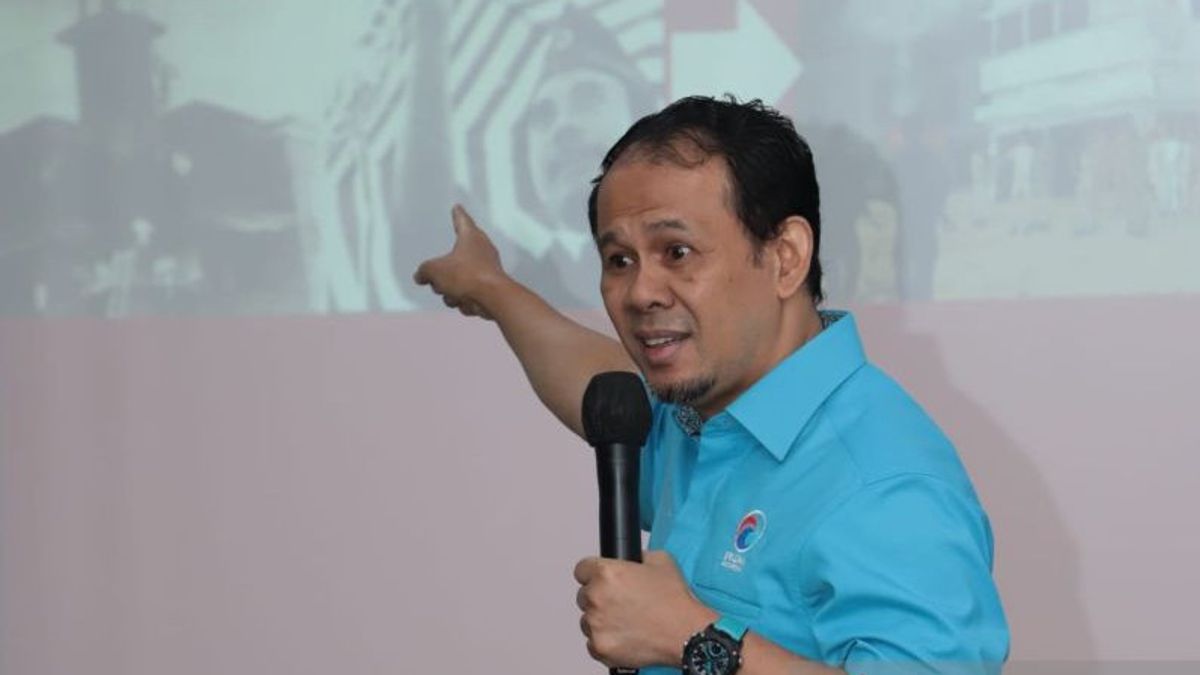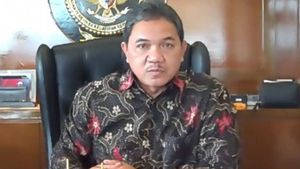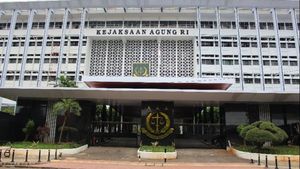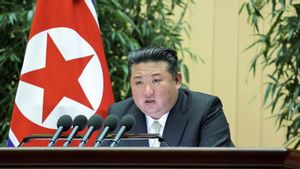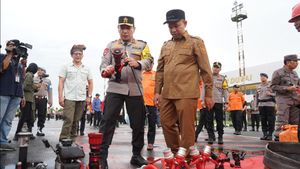JAKARTA - Secretary General of the Indonesian People's Wave Party (Gelora) Mahfuz Sidik proposed the General Election Commission (KPU) and the Election Supervisory Body (Bawaslu) to initiate the formation of a Special Task Force for Security for Information Information for the 2024 General Election.
"It seems that election organizers, in this case, the KPU and Bawaslu, need to initiate the formation of a special group, namely the Election Information Security Task Force," Mahfuz said in his statement in Jakarta, as reported by Antara, Friday, November 3.
This task force is to maintain the safety of election information from cyber attacks on the implementation of the 2024 General Election.
According to him, this task force can involve the Press Council, KPI, BSSN, Polri, and other related parties to carry out cyber patrols in order to enforce the law against the disinformation of the 2024 General Election.
Mahfuz was also worried that there would be hoaxes that would be a major disruption in the 2024 General Election.
In addition, the task force is needed considering that the Indonesian regulations governing the digital world are now 10 years behind.
"This digital world has been running in our midst and has advanced to all aspects of life, including in political life in the last 10 years, which has been very progressive," he said.
The former chairman of Commission I of the DPR considers that Indonesian broadcasting regulations are unable to reach the spread of hoaxes carried out by internet-based television.
"Right now, there are many TVs that have an internet platform. When he spread hoaxes, who is a stakeholder or stakeholder who can enforce regulations, whether the Press Council or KPI, isn't there now," said Mahfuz.
As a result of the 10-year broadcasting regulation, continued Mahfuz, making a lot of digital waste, which can be "fried" into hoaxes and hate speech ahead of the 2024 General Election.
With many hoaxes and hate speech scattered in cyberspace, according to Mahfuz, KPU and Bawaslu as organizers, it will be difficult to carry out this democratic party cheerfully.
"Especially if you look at the diction about the current election which has shifted from party to competition or contestation. So these two words of diction, which are always familiar to our ears at this time," he explained.
So that when the word competition and contestation diction becomes a big perception of elections, the factors that will determine are how strong and tough the competition and contestation will be in the field.
The battle between PDI-P General Chair Megawati Soekarnoputri and President Joko Widodo is a competition or power struggle contestation.
Therefore, it is not surprising that there will be an increase in the number of hoaxes during the period January to October 2023, as reported by the Ministry of Communication and Information and the National Police Headquarters.
"I predict that cyber fights through hoaxes, hate speech will have a very sharp leap in the digital world's war this November. I think this is where it is important for us to understand, realize and mitigate, because what the consequences, risks or costs that we have to pay collectively can be like the 2019 election, namely social division and polarization," he added.
If you look at the trend of increasing hoaxes and hate speech today, there are several things behind it, including the presence of voters among Generation Z and millennials which reach more than 55 percent, which cannot be separated from social media or gadgets every day.
While they are the target of the vote shots from presidential candidates, vice presidential candidates, legislative candidates and political parties, as well as successful teams. They will be treated with disinformation through social media regarding power struggles, a tough battle to attract 50 percent of the generation of Z and millennials.
He saw that the providers of hoax services and hate speech ahead of the 2024 General Election would live again, even though they had broken up their partnerships.
"We need to be careful in responding to this, because there is a narrative that has begun to be developed regarding the potential for fraud, regardless of the current situation and controversy in the political process. This will be a common opinion, it will be the most delicious spice for the process of disinformation in the digital world," he said.
He reminded that digital disinformation currently involves advances in artificial intelligence (AI) as happened some time ago, when there was information that President Jokowi suddenly was proficient in Mandarin.
This means that the use of AI to produce hoaxes and hate speech will increase ahead of the 2024 General Election. This is what distinguishes the 2024 General Election from the 2019 Election.
"So, in terms of products that are produced, we already use AI. The products will use a lot of audio visual products or videos that are starting to be spread on social media to stimulate, stimulate people's emotions. We need to mitigate and be aware of together, don't take advantage of this situation. Remember the political division after the 2019 election, that's the cost we bear," concluded Mahfuz.
VOIR éGALEMENT:
The English, Chinese, Japanese, Arabic, and French versions are automatically generated by the AI. So there may still be inaccuracies in translating, please always see Indonesian as our main language. (system supported by DigitalSiber.id)
